
SCARS Institute’s Encyclopedia of Scams™ Published Continuously for 25 Years

Scam Survivor’s Guilt : A SCARS Insight
Crime victims are especially prone to expressing guilt, even if there are no other victims of their crime.
In the case of online scam victims, the survivor’s guilt can overwhelm them but be compounded by the realization that they are just one of the millions affected by these crimes.
What Is Survivor’s Guilt?
Survivor guilt (or survivor’s guilt; also called survivor syndrome or survivor’s syndrome and survivor disorder or survivor’s disorder) is a mental condition that occurs when a person believes they have done something wrong by surviving a traumatic or tragic event when others did not, often feeling self-guilt. It also applies when the victim feels guilt that a crime happened to them – that they were responsible for allowing it.
The experience and manifestation of survivor’s guilt will depend on an individual’s psychology. It is defined as a significant symptom of post-traumatic stress disorder (PTSD). It may be found among survivors of combat, epidemics, murder, natural disasters, rape, terrorism, confidence scams or fraud, among the friends and family of those who have died by suicide, and in non-mortal situations.
Survivor Syndrome
Survivor syndrome, also known as concentration camp syndrome (or KZ syndrome on account of the German term Konzentrationslager), are terms that have been used to describe the reactions and behaviors of people who have survived massive and adverse events.
In 1949, Eddy de Wind, a Dutch psychiatrist, and survivor of Auschwitz concentration camp introduced the term “concentration camp syndrome” regarding the psychological consequences of persecution, describing the “pathological after-effects” unique to former prisoners of Nazi concentration and extermination camps. The subsequently well-documented syndrome among Holocaust survivors includes anxiety and depression, intellectual impairment, social withdrawal, sleep disturbance and nightmares, physical complaints, and mood swings with loss of drive. Several studies have examined the “chronic and progressive” nature of the condition, with symptoms increasing in intensity as survivors age.
Commonly such survivors feel guilty that they have survived the trauma and others – such as their family, friends, and colleagues – did not.
Both conditions, along with other descriptive syndromes covering a range of traumatic events are now subsumed under post-traumatic stress disorder.
Typical Guilt Reaction After A Crime
Although every victim is different, there are some typical responses:
Shock Or Numbness
Victims may feel “frozen” and cut off from their own emotions. Some victims say they feel as if they are “watching a movie” rather than having their own experiences. Victims may not be able to make decisions or conduct their lives as they did before the crime.
Denial, Disbelief, and Anger
Victims may experience “denial,” an unconscious defense against painful or unbearable memories and feelings about the crime. Or, they may experience disbelief, telling themselves, “This could not be happening.” They may feel intense anger and a desire to get even with the person who committed the crime.
Confusion
Quite often, victims struggle with confusion about what has happened, and what is going on around them. They may repeat themselves several times, unaware of who they have previously said things to.
Guilt
Feelings of guilt are very common. Victims frequently think that they should have been able to do something to prevent the crime. They often think “If only I had . . . this wouldn’t have happened.”
A Need to “Do” Something
It is very typical for some victims or family members to feel as though they need to “get busy” right away and make sure things are handled. This could be a way of coping for some.
Other Typical Responses:
- Trouble sleeping or excessive sleeping
- Continual sadness with frequent crying
- Flashbacks
- Extreme tension or anxiety
- Lack of motivation and energy
- Outbursts of anger
- Memory problems
- Trouble concentrating
- Other symptoms of distress for days or weeks following a trauma
Secondary injuries: When victims do not receive the support and help they need after the crime, they may suffer “secondary” injuries. They may be hurt by a lack of understanding from friends, family, and the professionals they come in contact with – particularly if others seem to blame the victim for the crime (suggesting they should have been able to prevent or avoid it).
Online Relationship Scams Cause Trauma And Trauma Causes Guilt In Many
PTSD is a common outcome for romance & relationship scam victims.
People who develop post-traumatic stress disorder (PTSD) also commonly experience guilt. In particular, individuals who have endured traumatic events may also begin to feel what’s known as trauma-related guilt. But what does the term mean exactly?
How Guilt Develops After Trauma
Trauma-related guilt refers to the feelings of regret stemming from the belief that you could or should have done something different at the time a traumatic event occurred. For example, a military veteran may regret not going back into a combat zone to save a fallen soldier. A rape survivor may feel guilty about not fighting back at the time of the assault. A relationship scam victim should have known better than to fall for it or should have stopped it earlier.
Trauma survivors may also experience a particular type of trauma-related guilt, called survivor guilt. Survivor guilt is often experienced when a person has made it through the traumatic event. A person may question why they survived. They may even blame themselves for surviving a traumatic event as if they did something wrong.
The experience of trauma-related guilt does not seem to depend on the type of traumatic event experienced. Combat exposure, physical abuse, sexual abuse, psychological manipulation, and the loss of a loved one have all been found to be associated with the experience of trauma-related guilt.
In the case of scam victims, it is a combination of several of these:
- The victim’s own manipulation
- The loss of the relationship as though a loved one died
- The impact on the victim’s financial future
- The impact on their family who do not know about the scam
- The impact of maintaining the secret
Consequences Of Trauma Guilt
Feeling guilt after the experience of a traumatic event is serious, as it has been linked to a number of negative consequences.
For example, trauma-related guilt has been found to be associated with:
- depression
- shame
- social anxiety
- low self-esteem
- and thoughts of suicide
In addition, feeling a lot of trauma-related guilt has been connected to the development of PTSD.
Given the potential negative consequences of trauma-related guilt, it is important that any such guilt is recognized and addressed.
Treatment For Trauma & Survivor’s Guilt
SCARS provides “Peer to Peer’ Support Groups for scam victims, however, this may not always be enough for all victims of online crime.
We recommend to all crime victims that you seek local counseling or therapy from professionals experienced and certified in trauma. Links are provided below to help you find such licensed professionals in your community. In many countries, such counseling is provided free to scam victims.
Cognitive-Behavioral Therapy
Trauma-related guilt can be treated with cognitive-behavioral therapy. Trauma-related guilt may originate in how you think or interpret a situation.
For instance, a rape survivor may feel like they should have seen their attack coming, even though it was impossible to predict that the assault would occur. Likewise, a combat veteran may think to themselves that they should have done something different to prevent the death of a fellow soldier, even though the event may have been completely out of their control. The same is true of scam victims; that they should have known better than to believe a fraudster and should have recognized the signs.
Cognitive-behavioral therapy for trauma-related guilt would focus on helping people become more aware of the thoughts or beliefs that underlie feelings of guilt, such as through self-monitoring (journaling is important in this.) The therapist would then help the person come up with more realistic interpretations of the situation. For example, lessen your guilt by realizing that the traumatic event was completely out of your control, and you acted in the best way you could given the situation. By reducing guilt, cognitive behavioral therapy may also help increase self-compassion and acceptance.
In addition to cognitive-behavioral therapy, psychodynamic/psychoanalytic approaches can also be helpful in addressing this form of guilt. Psychodynamic and psychoanalytic approaches would aid the person in exploring their early life experiences (for example, relationships with significant others, early childhood traumas or fears) in order to identify experiences and factors that may make someone more likely to feel trauma-related guilt and shame.
Importance of Treatment For Scam Victims
Sadly, many scam victims do not believe they need help and instead turn to amateurs, fakes, and pretenders to express their feelings. These include unprofessional anti-scam groups and other nonprofessionals.
It’s important to state again that trauma-related guilt is something that desperately needs to be addressed.
You may think of trauma-related guilt as a nuisance—something which diminishes your quality of life alone. In contrast, trauma-related guilt is much more serious, and, at least in crime victims, is closely linked with suicidal thoughts.
SCARS encourages anyone coping with this guilt to talk openly with their doctors. Help is available, and studies suggest this help can make a significant difference for those who have experienced the trauma from online scams.
Finding A Counselor or Therapist
If you are looking for local trauma counselors please visit www.psychologytoday.com/us/therapists/trauma-and-ptsd
Suicidal Thoughts
Many scam victims experience trauma and develop suicidal thoughts.
If you are having suicidal thoughts, contact the National Suicide Prevention Lifeline at 1-800-273-8255 now for support and assistance from a trained counselor. If you or a loved one are in immediate danger, call 911.
The hotline may not be expert in the nuances of online crime, but they can listen to your pain and help you find solutions. If you need to talk to someone, 24/7 call 1-800-273-8255
For more crisis hotlines around the world visit: International Suicide & Emergency Hotlines (opencounseling.com)
SCARS Support For Scam Victims
The Society provides Support Groups and Forums available to all scam victims free of any costs*
- English Support Group on Facebook: www.facebook.com/groups/SCARS.Avoidance.Information.Public.Group
- Spanish Support Group on Facebook: www.facebook.com/groups/SCARS.RSN.Foro.de.Estafas.en.Espanol
- Portuguese Support Group on Facebook: www.facebook.com/groups/SCARS.Grupo.de.Suporte
- German/English Support Group on Facebook: www.facebook.com/groups/Victims.Self.Help.Group
- SCARS Director – Debby Montgomery Johnson’s Stand Up & Speak Up Group: www.facebook.com/groups/Stand.Up.Speak.Up.Internet.Radio.Group
- Scam Victims’ Website Forum: www.ScamVictimSupport.org
Remember
While SCARS Provides support groups for scam victims it may not be all you need. Our recovery program also recognizes that local trauma counseling and therapy play an important role for many scam victims. Do not dismiss this out of a mistaken belief that you are fine or already recovered – it may be far from reality. After all, this is your future we are talking about!
TAGS: SCARS, Psychology of Scams, Trauma, Survivor’s Guilt, Information About Scams, Anti-Scam, Scams, Scammers, Fraudsters, Cybercrime, Crybercriminals, Romance Scams, Scam Victims,
SCARS™ Team
Society of Citizens Against Relationship Scams Inc.
A Worldwide Crime Victims Assistance Nonprofit Organization
Visit: www.AgainstScams.org
Contact Us: Contact@AgainstScams.org
PLEASE SHARE OUR ARTICLES WITH YOUR FRIENDS & FAMILY
HELP OTHERS STAY SAFE ONLINE – YOUR KNOWLEDGE CAN MAKE THE DIFFERENCE!
The Latest SCARS Posts:
FIND MORE SCAM NEWS
«SCAMCRIME.COM»
JOIN US ON FACEBOOK
«CLICK HERE»
END
MORE INFORMATION
– – –
Tell us about your experiences with Romance Scammers in our
« Scams Discussion Forum on Facebook »
– – –
FAQ: How Do You Properly Report Scammers?
It is essential that law enforcement knows about scams & scammers, even though there is nothing (in most cases) that they can do.
Always report scams involving money lost or where you received money to:
- Local Police – ask them to take an “informational” police report – say you need it for your insurance
- U.S. State Police (if you live in the U.S.) – they will take the matter more seriously and provide you with more help than local police
- Your National Police or FBI « www.IC3.gov »
- The SCARS|CDN™ Cybercriminal Data Network – Worldwide Reporting Network on « www.Anyscam.com »
This helps your government understand the problem, and allows law enforcement to add scammers on watch lists worldwide.
– – –
To learn more about SCARS visit « www.AgainstScams.org »
Please be sure to report all scammers
on « www.Anyscam.com »
Disclaimer:
SCARS IS A DIGITAL PUBLISHER AND DOES NOT OFFER HEALTH OR MEDICAL ADVICE, LEGAL ADVICE, FINANCIAL ADVICE, OR SERVICES THAT SCARS IS NOT LICENSED OR REGISTERED TO PERFORM.
IF YOU’RE FACING A MEDICAL EMERGENCY, CALL YOUR LOCAL EMERGENCY SERVICES IMMEDIATELY, OR VISIT THE NEAREST EMERGENCY ROOM OR URGENT CARE CENTER. YOU SHOULD CONSULT YOUR HEALTHCARE PROVIDER BEFORE FOLLOWING ANY MEDICALLY RELATED INFORMATION PRESENTED ON OUR PAGES.
ALWAYS CONSULT A LICENSED ATTORNEY FOR ANY ADVICE REGARDING LEGAL MATTERS.
A LICENSED FINANCIAL OR TAX PROFESSIONAL SHOULD BE CONSULTED BEFORE ACTING ON ANY INFORMATION RELATING TO YOUR PERSONAL FINANCES OR TAX RELATED ISSUES AND INFORMATION.
This content and other material contained on the website, apps, newsletter, and products (“Content”), is general in nature and for informational purposes only and does not constitute medical, legal, or financial advice; the Content is not intended to be a substitute for licensed or regulated professional advice. Always consult your doctor or other qualified healthcare provider, lawyer, financial, or tax professional with any questions you may have regarding the educational information contained herein. SCARS makes no guarantees about the efficacy of information described on or in SCARS’ Content. The information contained is subject to change and is not intended to cover all possible situations or effects. SCARS does not recommend or endorse any specific professional or care provider, product, service, or other information that may be mentioned in SCARS’ websites, apps, and Content unless explicitly identified as such.
The disclaimers herein are provided on this page for ease of reference. These disclaimers supplement and are a part of SCARS’ website’s Terms of Use.
Legal Notices:
All original content is Copyright © 1991 – 2020 Society of Citizens Against Relationship Scams Inc. (D.B.A SCARS) All Rights Reserved Worldwide & Webwide. Third-party copyrights acknowledge.
SCARS, SCARS|INTERNATIONAL, SCARS, SCARS|SUPPORT, SCARS, RSN, Romance Scams Now, SCARS|INTERNATION, SCARS|WORLDWIDE, SCARS|GLOBAL, SCARS, Society of Citizens Against Relationship Scams, Society of Citizens Against Romance Scams, SCARS|ANYSCAM, Project Anyscam, Anyscam, SCARS|GOFCH, GOFCH, SCARS|CHINA, SCARS|CDN, SCARS|UK, SCARS|LATINOAMERICA, SCARS|MEMBER, SCARS|VOLUNTEER, SCARS Cybercriminal Data Network, Cobalt Alert, Scam Victims Support Group, are all trademarks of Society of Citizens Against Relationship Scams Inc., All Rights Reserved Worldwide
Contact the law firm for the Society of Citizens Against Relationship Scams Incorporated by email at legal@AgainstScams.org
-/ 30 /-
What do you think about this?
Please share your thoughts in a comment below!
Table of Contents
- Crime victims are especially prone to expressing guilt, even if there are no other victims of their crime.
- Survivor Syndrome
- Shock Or Numbness
- Denial, Disbelief, and Anger
- Confusion
- Guilt
- A Need to “Do” Something
- Other Typical Responses:
- PTSD is a common outcome for romance & relationship scam victims.
- How Guilt Develops After Trauma
- Consequences Of Trauma Guilt
- Cognitive-Behavioral Therapy
- Importance of Treatment For Scam Victims
- Ethereum ETHM Token Trap and Pig Butchering Scams – 2026
- New U.S. Law – S.3643 – 118th Congress – Will Dramatically Impact Scammers and Terrorists – 2026
- How Scam Survivors Can Survive Valentine’s Day – 2026
- U.S. Veterans Benefits Scams – 2026
- New AI Voice Cloning Phone Scams – 2026
- An Essay on Justice and Money Recovery – 2026
- Tell us about your experiences with Romance Scammers in our
« Scams Discussion Forum on Facebook » - FAQ: How Do You Properly Report Scammers?
- Please be sure to report all scammers
on « www.Anyscam.com »
LEAVE A COMMENT?
Recent Comments
On Other Articles
- Arwyn Lautenschlager on Love Bombing And How Romance Scam Victims Are Forced To Feel: “I was love bombed to the point that I would do just about anything for the scammer(s). I was told…” Feb 11, 14:24
- on Dani Daniels (Kira Lee Orsag): Another Scammer’s Favorite: “You provide a valuable service! I wish more people knew about it!” Feb 10, 15:05
- on Danielle Delaunay/Danielle Genevieve – Stolen Identity/Stolen Photos – Impersonation Victim UPDATED 2024: “We highly recommend that you simply turn away form the scam and scammers, and focus on the development of a…” Feb 4, 19:47
- on The Art Of Deception: The Fundamental Principals Of Successful Deceptions – 2024: “I experienced many of the deceptive tactics that romance scammers use. I was told various stories of hardship and why…” Feb 4, 15:27
- on Danielle Delaunay/Danielle Genevieve – Stolen Identity/Stolen Photos – Impersonation Victim UPDATED 2024: “Yes, I’m in that exact situation also. “Danielle” has seriously scammed me for 3 years now. “She” (he) doesn’t know…” Feb 4, 14:58
- on An Essay on Justice and Money Recovery – 2026: “you are so right I accidentally clicked on online justice I signed an agreement for 12k upfront but cd only…” Feb 3, 08:16
- on The SCARS Institute Top 50 Celebrity Impersonation Scams – 2025: “Quora has had visits from scammers pretending to be Keanu Reeves and Paul McCartney in 2025 and 2026.” Jan 27, 17:45
- on Scam Victims Should Limit Their Exposure To Scam News & Scammer Photos: “I used to look at scammers photos all the time; however, I don’t feel the need to do it anymore.…” Jan 26, 23:19
- on After A Scam, No One Can Tell You How You Will React: “This article was very informative, my scams happened 5 years ago; however, l do remember several of those emotions and/or…” Jan 23, 17:17
- on Situational Awareness and How Trauma Makes Scam Victims Less Safe – 2024: “I need to be more observant and I am practicing situational awareness. I’m saving this article to remind me of…” Jan 21, 22:55
ARTICLE META
Important Information for New Scam Victims
- Please visit www.ScamVictimsSupport.org – a SCARS Website for New Scam Victims & Sextortion Victims
- Enroll in FREE SCARS Scam Survivor’s School now at www.SCARSeducation.org
- Please visit www.ScamPsychology.org – to more fully understand the psychological concepts involved in scams and scam victim recovery
If you are looking for local trauma counselors please visit counseling.AgainstScams.org or join SCARS for our counseling/therapy benefit: membership.AgainstScams.org
If you need to speak with someone now, you can dial 988 or find phone numbers for crisis hotlines all around the world here: www.opencounseling.com/suicide-hotlines
A Note About Labeling!
We often use the term ‘scam victim’ in our articles, but this is a convenience to help those searching for information in search engines like Google. It is just a convenience and has no deeper meaning. If you have come through such an experience, YOU are a Survivor! It was not your fault. You are not alone! Axios!
A Question of Trust
At the SCARS Institute, we invite you to do your own research on the topics we speak about and publish, Our team investigates the subject being discussed, especially when it comes to understanding the scam victims-survivors experience. You can do Google searches but in many cases, you will have to wade through scientific papers and studies. However, remember that biases and perspectives matter and influence the outcome. Regardless, we encourage you to explore these topics as thoroughly as you can for your own awareness.
Statement About Victim Blaming
SCARS Institute articles examine different aspects of the scam victim experience, as well as those who may have been secondary victims. This work focuses on understanding victimization through the science of victimology, including common psychological and behavioral responses. The purpose is to help victims and survivors understand why these crimes occurred, reduce shame and self-blame, strengthen recovery programs and victim opportunities, and lower the risk of future victimization.
At times, these discussions may sound uncomfortable, overwhelming, or may be mistaken for blame. They are not. Scam victims are never blamed. Our goal is to explain the mechanisms of deception and the human responses that scammers exploit, and the processes that occur after the scam ends, so victims can better understand what happened to them and why it felt convincing at the time, and what the path looks like going forward.
Articles that address the psychology, neurology, physiology, and other characteristics of scams and the victim experience recognize that all people share cognitive and emotional traits that can be manipulated under the right conditions. These characteristics are not flaws. They are normal human functions that criminals deliberately exploit. Victims typically have little awareness of these mechanisms while a scam is unfolding and a very limited ability to control them. Awareness often comes only after the harm has occurred.
By explaining these processes, these articles help victims make sense of their experiences, understand common post-scam reactions, and identify ways to protect themselves moving forward. This knowledge supports recovery by replacing confusion and self-blame with clarity, context, and self-compassion.
Additional educational material on these topics is available at ScamPsychology.org – ScamsNOW.com and other SCARS Institute websites.
Psychology Disclaimer:
All articles about psychology and the human brain on this website are for information & education only
The information provided in this article is intended for educational and self-help purposes only and should not be construed as a substitute for professional therapy or counseling.
While any self-help techniques outlined herein may be beneficial for scam victims seeking to recover from their experience and move towards recovery, it is important to consult with a qualified mental health professional before initiating any course of action. Each individual’s experience and needs are unique, and what works for one person may not be suitable for another.
Additionally, any approach may not be appropriate for individuals with certain pre-existing mental health conditions or trauma histories. It is advisable to seek guidance from a licensed therapist or counselor who can provide personalized support, guidance, and treatment tailored to your specific needs.
If you are experiencing significant distress or emotional difficulties related to a scam or other traumatic event, please consult your doctor or mental health provider for appropriate care and support.
Also read our SCARS Institute Statement about Professional Care for Scam Victims – click here to go to our ScamsNOW.com website.


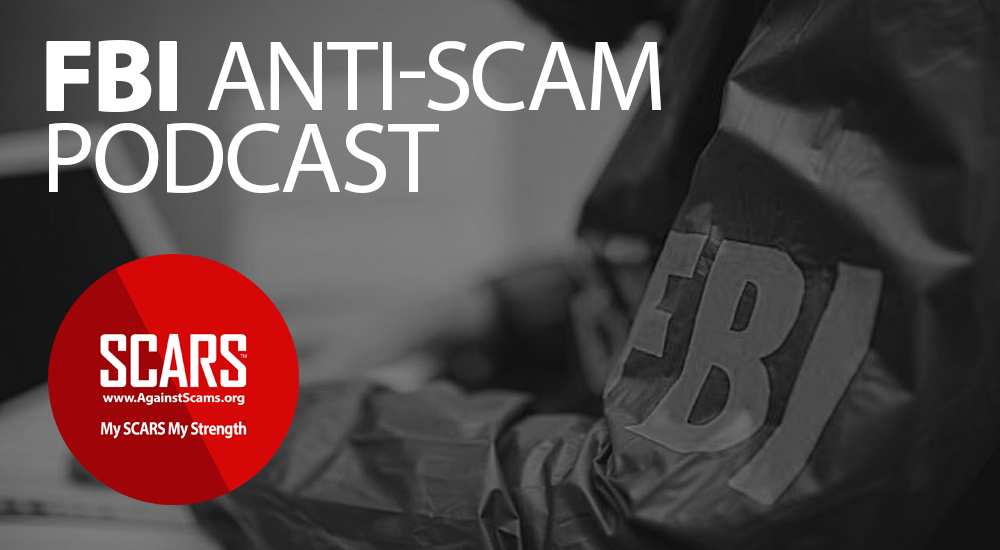
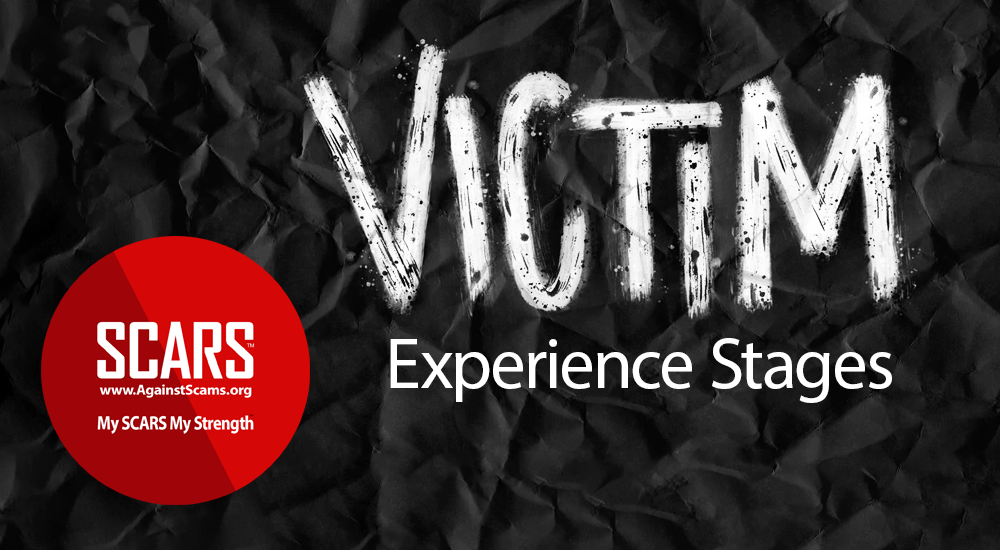
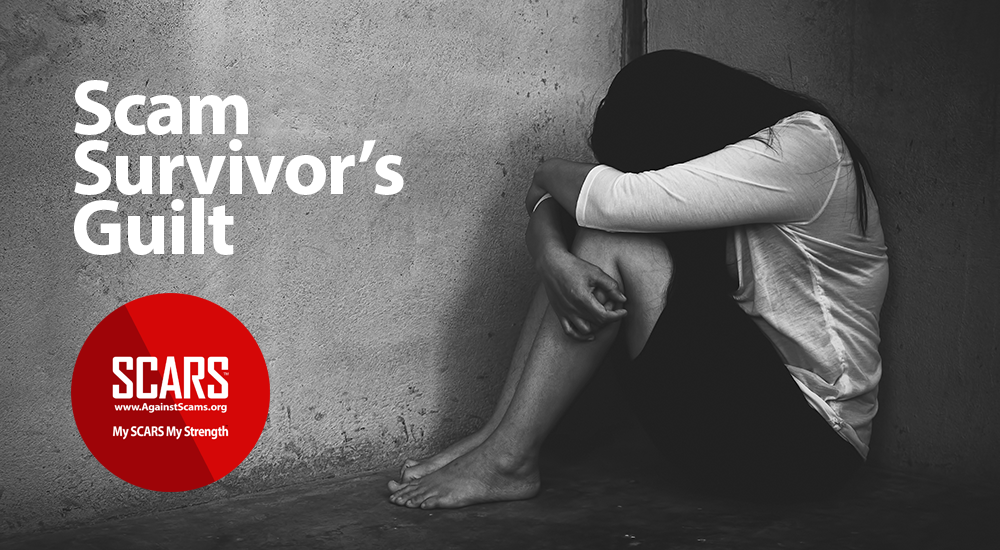

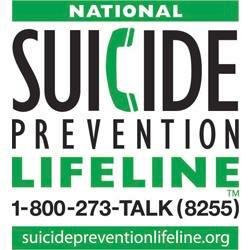

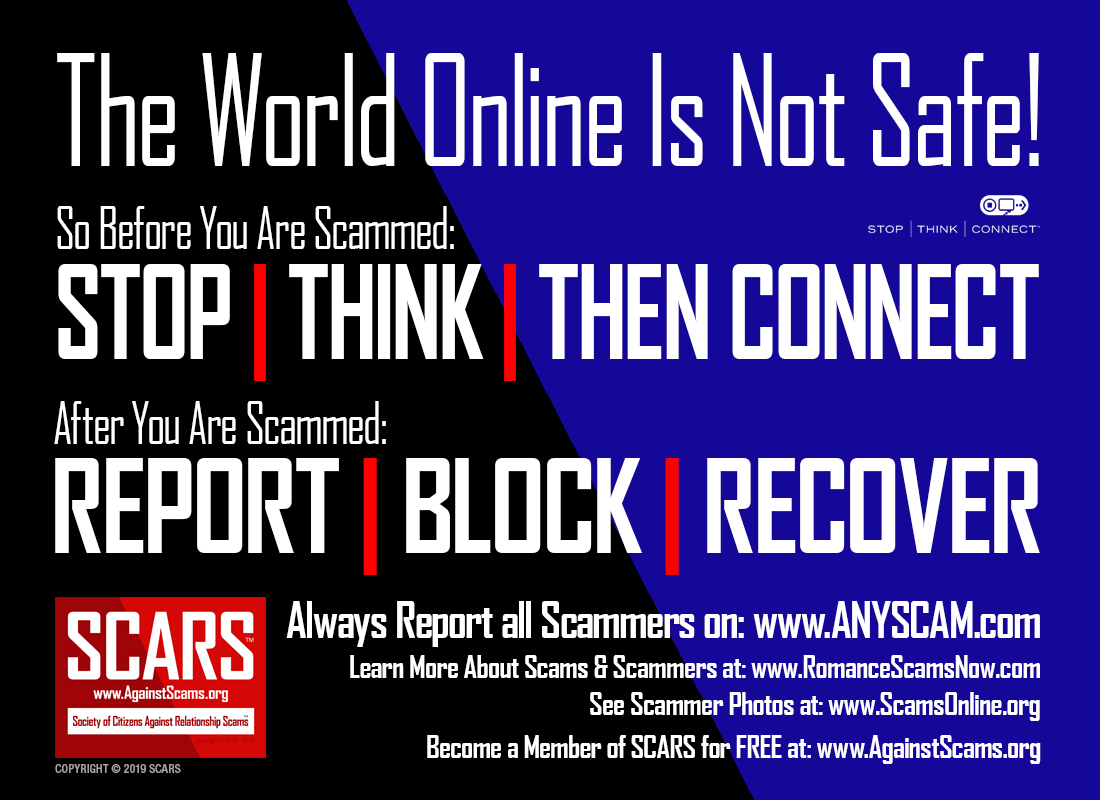






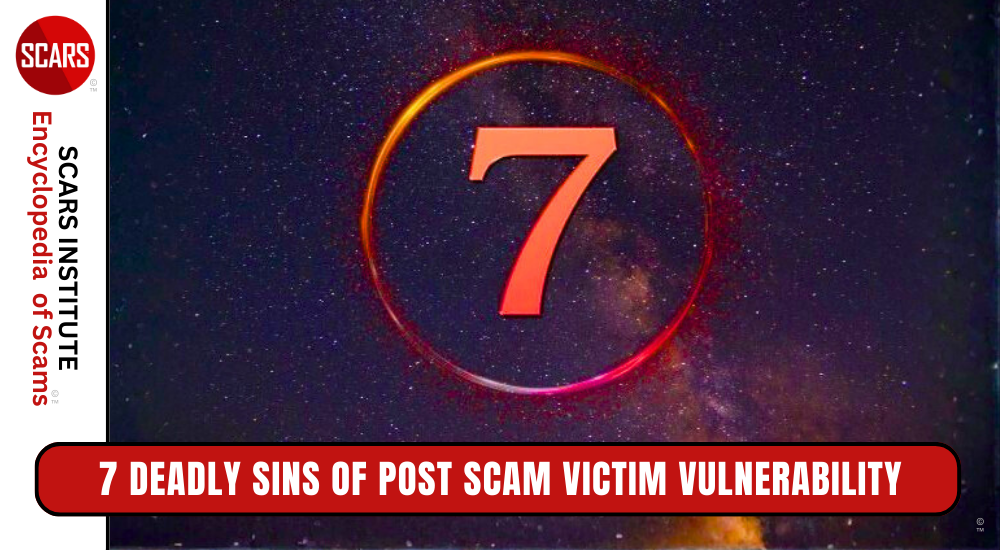
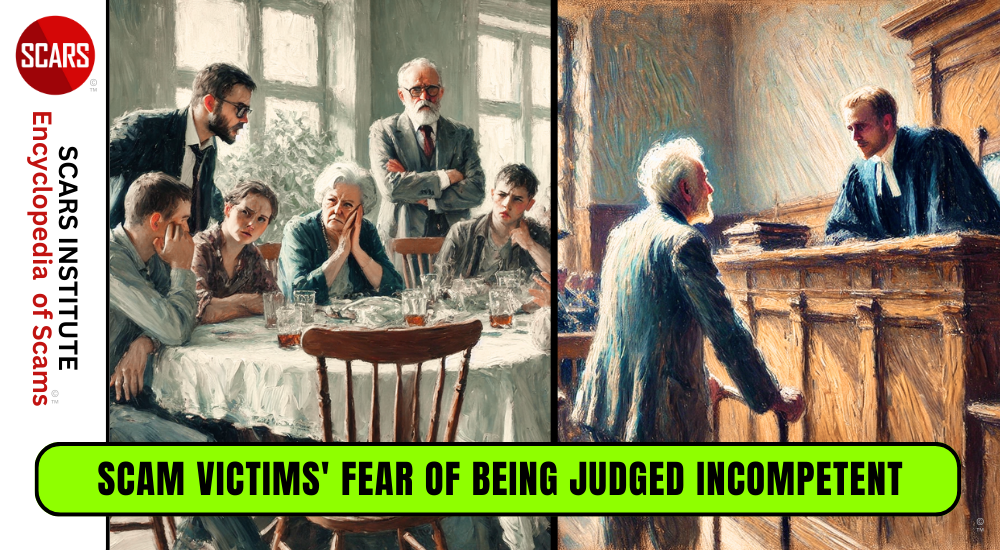
![Financial Recovery - Avoid Money Triggers - Perspective on Money for Scam Victims - 2023 [UPDATED 2025] Financial Recovery Money Triggers Financial Recovery - Avoid Money Triggers - Perspective on Money for Scam Victims - 2023 [UPDAYED 2025] - on the SCARS Institute RomanceScamsNOW.com - the Encyclopedia of Scams™](https://romancescamsnow.com/wp-content/uploads/2025/06/Financial-Recovery-Money-Triggers.png)
![Why People Blame Scam Victims? Stop Scam Victim Blaming - [UPDATED 2025] Why People Blame Scam Victims 2025 Why People Blame Scam Victims? Stop Scam Victim Blaming - [UPDATED 2025] - on the SCARS Institute RomanceScamsNOW.com - the Encyclopedia of Scams™](https://romancescamsnow.com/wp-content/uploads/2021/11/Why-People-Blame-Scam-Victims-2025.png)
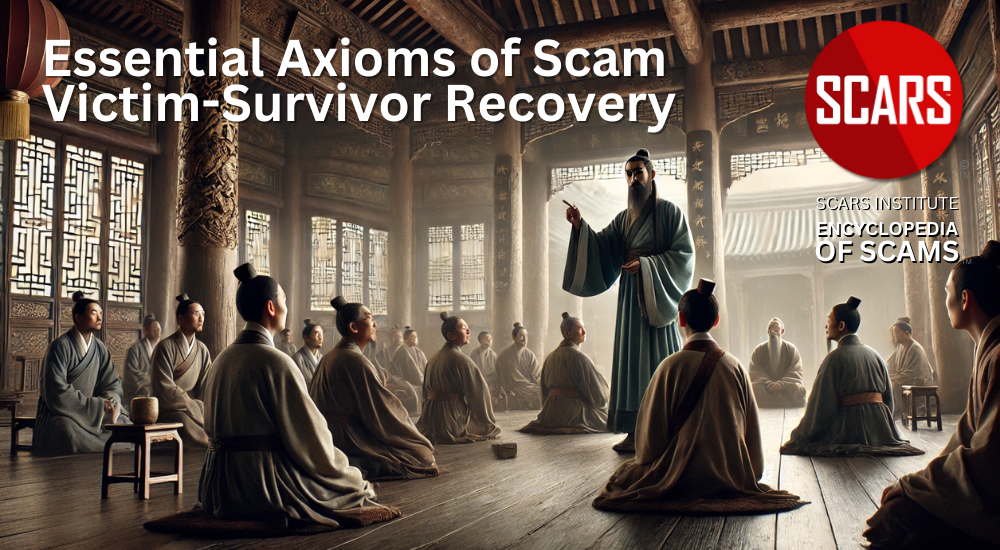




Thank you for your comment. You may receive an email to follow up. We never share your data with marketers.